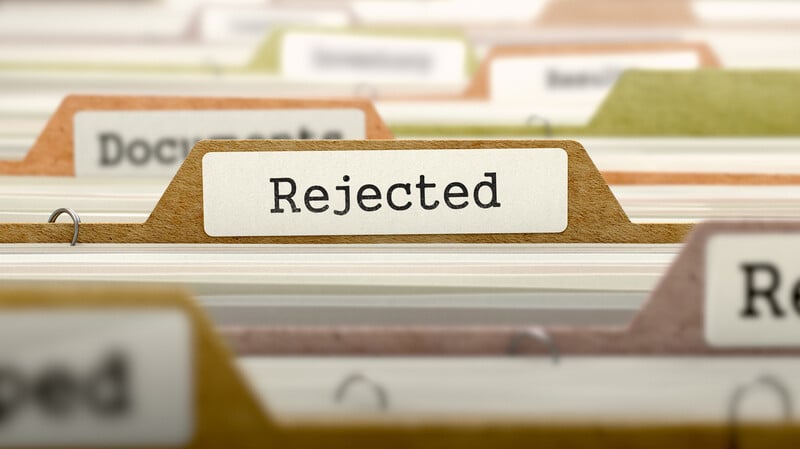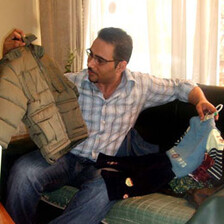The Electronic Intifada 10 September 2025

It was 2:30 pm on a Tuesday in early August, and I was sitting in the far-right seat of an Edinburgh visa facilitation center, waiting to submit my Schengen visa documents to a Lithuanian embassy representative.
I had been waiting for nearly two hours. Around me were many “people of color,” as we are often called, those not classified as “white” or, as it used to be openly said, “the superior race.”
Over time, such linguistic directness became subtler. They return forcefully in places like airports and embassies, or where I was sitting that day on 4 August, next to a little girl no older than two with dark curly pigtails, smiling from her mother’s lap. Her mother said they had been waiting since 10 am, and their turn had still not come. My appointment was supposed to be at 12:30.
For people like us, the message seems to be, time is not important, it holds no value and appointments are pro forma fictions.
In my hands lay all the documents – direct and indirect – proving that I, a “desperate Palestinian,” had no intention of seeking asylum or settling in their country. I had worked on them an entire week. I had heard numerous stories from my friends, including my husband, who were rejected by the Lithuanian embassy for strange and utterly trivial reasons, like spurious suspicions around the authenticity of documents supplied, or whether applicants intended to travel on from Lithuania.
The truth is, I don’t need to look hard for reasons. My passport – is it even a passport? – bears the name of the Palestinian Authority. Airport staff gaze at it in a strange way every time, as if they are seeing it for the first time. Perhaps they wonder if it is fake or real. And if it is real, which foreign country does it come from?
To be fair, “Palestinian Authority” instead of Palestine, is, frankly, quite baffling.
Why do they hate us?
Back in Gaza, with no electricity, no water, and no passport, I used to tell myself that books were my passport – that through them, I could travel the world without leaving my room. I read constantly, flying over lands I might never see, sitting in the room I shared with my three sisters.
At the time, this idea brought me comfort.
But now, when I look back from here – from this visa center where I sit today – I feel only sadness. I realize how I unconsciously tried to shield myself from the anxiety of imagining what it means to move through the world with a Palestinian passport, to be treated like the “human animals” Israel tries to depict us as at every checkpoint and border.
I sit here again, years later, wondering the same thing I used to wonder back in Gaza: Why are we so despised?
I know my chances of having my application approved are slim – my husband’s application was rejected in two days, and many friends have faced the same. Getting a Schengen visa with a Palestinian passport is notoriously difficult. A “respectable” passport, like the British, would change everything.
When I received my fully funded scholarship to study in the UK starting in September 2023, I was overjoyed at the thought of escaping the siege to continue my education. I wanted to see the world outside Gaza and bring something back with me: knowledge, cultural exchange and a seed of opportunity to inspire other students back home.
I see my past self in the faces of the 70-plus students still trapped under genocide in Gaza who have also received fully funded scholarships and unconditional offers from prestigious British universities yet remain unable to leave. They too dream of stepping into new worlds, meeting people they have only seen through screens and discovering that “normal life” exists.
When I first received my offer, I was thrilled beyond words. So imagine these students now: enduring siege and bombs, but seeing a faint window of light open. That window gives them something to believe in and look forward to – a life without hunger, fear, tents, rubble. A life with books, lectures, friendships and even future plans.
But the world that gazes at the Palestinian passport with suspicion is the same world that treats these students’ humanity with contempt. The British government, unlike Ireland or Italy, refused to evacuate its own scholarship students. No matter how smart, how qualified, how hopeful or how hard-working, they are still Palestinian.
The UK claimed it could not evacuate students because there is no visa center in Gaza to take biometric fingerprints. But fingerprints could be taken in Egypt or Jordan if there was political will. Instead, the UK turns absence into excuse: no center, no fingerprints, no visa. Through arrogance and an unyielding bureaucracy even in the face of genocide, students who meet every condition for study and evacuation are refused, as if these students do not quite qualify as fully human.
The privilege of planning
How long shall we wait? How long will so-called democratic states glorify their freedom while trampling on people like us, whose passports condemn us to humiliation at embassy gates and in waiting halls, until maybe a merciful official decides to push our papers through?
This isn’t about paperwork. It is the modern face of empire: bureaucratic imperialism dressed up in neat appointment systems and rejection emails.
The clock strikes 4 pm. My number is finally called.
“We cannot take your application, madam,” says the employee.
I am not surprised – the reasons change, but the outcome never does.
After some back-and-forth, however, they agreed to accept it – under the condition that I sign a declaration stating, “I’m applying at my own risk.”
I step out. Only two people remain in the waiting hall. My train, booked two hours after my supposed appointment, has long departed. But I remind myself: I’m Palestinian. Planning ahead is a privilege we’re rarely afforded. Everything in our lives is provisional.
I toss the documents I’d prepared but that weren’t needed into the bin. I still carry The Woman from Tantoura, a novel about the Nakba and its lingering aftermath. And I wonder: Am I condemned to spend my life reading misery, writing misery, sitting in the miserable chair of endless waiting?
For weeks, I heard nothing. No instant rejection meant the process was still ongoing. So, I began preparing for the journey and the conference I was meant to speak at. I let myself believe that, despite being Palestinian, I might actually receive the visa.
After 25 days, the answer came, the same answer that always comes: REJECTED.
Saga Hamdan is a Palestinian author, activist and researcher from Gaza, currently based in the UK, whose work centers on memory, survival and life under siege and genocide.


